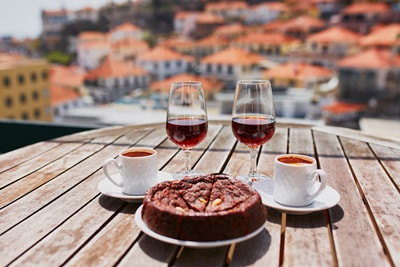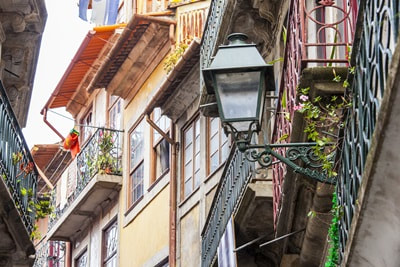|
Though renting an apartment or house in Portugal has some similarities to the process in the U.S., there are significant differences as well. In America, the landlord typically specifies the rental amount and which deposits (security, rent pre-payment) they require. Usually there is not much room for negotiation. That's not necessarily the case here. In Portugal the rental price is often negotiable, more like buying a home in the States. Since there is no such thing as a multi-listing service here, the price may vary depending on which online rental site its listed. Also, rental terms for the same location might vary from site to site, as well as the name of the contact person. As you begin this process, do not be surprised if your email to a potential landlord does not generate a reply. That is just the norm here. If you have some Portuguese under your belt, give them a call if possible. If you find you’re making zero progress, you might consider using whatever contacts you have in Portugal, or engage a realtor to help you find your new place. The Basics Our first piece of advice: Leave your American expectations behind. In Europe, the first thing you will learn is that space is usually at a premium, be that on the road, in a parking garage, or in your living quarters. Apartments are often far smaller than Americans are accustomed to, thirty-gallon hot water heaters are rare, and windows probably won’t have screens. Though there is a trend toward bigger apartments and houses (some as large as 3,000 sq. feet) the Portuguese norm is small and compact. These are less expensive, easier to maintain and your utility costs are less. Besides, why be inside when you can park yourself at an outdoor café for hours enjoying great food and conversation? As in much of Europe, older buildings usually do not have elevators. If you’re nimble and don’t mind hauling your food (and pretty much everything else) up a few flights of stairs, bless you. Remember, you will also be carrying all of your trash and recycling back down those stairs also. For us that was an issue and could be as well for those who might have cardiac issues, have mobility limitations, or might have surgery in your future (especially if it involves your legs or feet). For these folks, living on the ground floor or having access to an elevator is a necessity. Elevators here vary in size from medium-sized to tiny. If you plan on moving in your own furniture, take this into account as your brand-new mattress or sofa may not fit and you’ll be facing a multi-floor stair climb. Never fun. Apartment vs. Home? That is really a matter of taste. The two apartment complexes we’ve lived in were clean and well maintained. The first was noisier than the second—there’s no way to avoid that when you’re living close to your fellow humans. It didn’t help that we overlooked the courtyard of a popular shopping mall, which was kinda cool, but could get pretty loud at times. If you are a suburbanite and choose your new home in a city-center location, you might not be accustomed to living above a business, like big-city dwellers. If that business is a pharmacy, a quiet and odor-free type of establishment, perfect. But what if it is a restaurant? A bar? A coffee shop that hosts outdoor concerts and gatherings on its terrace which is only a few stories below your windows? What if it’s a bar and it’s open well past midnight? There is always street noise in central locations with people, busses and cars moving around at all hours. Choosing a house or apartment outside the city center grants you more tranquility, but fewer transportation options and a longer trudge to the grocery, and sometimes might require you to own a car. These are all things to take into consideration as you begin your apartment hunt. ProTip: I’m a terribly light sleeper so I discovered a iPhone app (White Noise) that delivers just that, as well as the sound of waves, or a lovely rainstorm to help block out everything else. Also, I use an air purifier which also delivers its own white noise. Depending on the complex, apartments, often have stronger security measures in place than homes because Portugal, like any country, has issues with burglary. Though a home might not be as secure, it can also provide more privacy. It all depends on if your home encompasses the entire building or just one floor (andar moradia) of the building. Energy Ratings Often apartments and homes have an energy rating listed in the ad (rated A to F). Some had no energy rating at all or the landlord indicates the rating is in process. This rating process involves an evaluation of any existing insulation (not common), type of windows, floors, ceiling, and ventilation. No surprise A is good, F is bad. Also it’s not uncommon to have apartments in the same building, with the same kind of windows, to have different ratings. This rating will allow you to compare different apartments and make an evaluation of which would be more comfortable and less costly for utilities. Unless you are of hearty North Dakota stock, an apartment with an F energy rating likely means you will be huddled up in a blanket next to a portable heater for part of the winter months, even in Southern Portugal. Heating & Air Conditioning Portugal’s A/C is not central air conditioning like in the U.S. Instead, it’s usually a mini-split attached to the wall and located in certain rooms, like in the living room, but not the bedrooms. Sometimes these units also offer heat so that’s a plus. Another type of A/C unit has a pipe that is vented through a window, which isn’t as handy. In our case, the windows in our house would not work for this kind of unit. Portuguese apartments and homes are often unheated and this is one of the first things we check for in a rental ad. You may see the word aquecemento or caldeira, which is hot water heat supplied via a radiator. Since Portuguese dwellings don’t usually include insulation (most of the buildings are poured concrete) the lack of some form of heat can be a problem. Depending on what part of the country, it can be very chilly and so damp your walls will grow mold. If the advertisement says it features central heating, look to make sure it also states “piped gas” is included. There are electric boilers which are more expensive to operate, and some of the boilers and heating units use refillable gas canisters which require a lot of handling and maintenance. There are ventless types of heating units with gas cylinders that are common in Portugal. Generally, the houses have windows and doors that are ill-fitting and allow enough air infiltration that the buildup of carbon monoxide is not a serious problem. Even though these types of units feature a lot of safety features, unless your need for accommodation is acute, you should probably keep looking if you encounter a heating system like this. There are also radiators that are an oil-electric combo and plug into a wall socket. They offer flexibility but can be expensive to operate as a main source of heating. We learned the hard way that we needed to report our electric, gas and water usage by reading the meters once per month, then entering that data on the suppliers’ websites to avoid them estimating our usage. The 293€ bill for the electric and gas we received one month during our first winter was a shocker, to say the least (gas and electric combined), especially after we were accustomed to very low utility statements. After a slightly panicked call to our landlord we learned about doing the readings. If your new place has remained vacant for a period of time, the estimates will likely be ridiculously low. When they come out to read the meters, usually 2-3 times per year, they will pile all the usage for the past few months into one bill. By reporting usage monthly, your bill will accurately reflect what you use on a monthly basis. Although it is sometimes seen as an option, the budget billing methods that we were accustomed to in the states is not as prevalent here. One way to reduce utility costs is if the apartment/house has vidros duplos (double pane windows), though they don’t seem to be as tight as their U.S. counterparts. Some open like a door and some also open from the top partway, which is quite useful. Another unique item you’ll find are persianas. These are collapsible vinyl or metal sunshades that are stored in an enclosure above the window and are rolled up and down either electrically, using a wand, or a strap located along the side of the window. Persianas help cut some of the sun and the wind/cold, but the ‘box’ above the window where they are stored can be the source of a draft when the wind is blowing. They also rattle when the wind is blowing, even when fully closed. Lighting As mentioned in an earlier post, one curiosity of renting here is that you can’t count on having light fixtures in place when you move in. If not, you will need to trot down to your local hardware or lighting store, pick out the ones that work for you and install them. When we moved into our first apartment there were very few lights, and the second flat had all the lights with a few extra places to add some of our own. We did bring our fixtures and stored the extras in case we need them down the line. Fortunately, they’re not that expensive. Orientation Often you will see a line in the ad that will signify the orientation of the house or apartment. For your comfort, it is important to consider how much cross-ventilation that you will have, and to keep in mind how summer sun might turn a normally comfortable space into a furnace. In most places, you will normally not have air conditioning, so the bulk of your climate control will be open windows and fans. Even if your apartment features air conditioning, the costs of operation is likely to be prohibitive, so the more free climate control you can take advantage the better. The more sides of the building with windows, the better chance you are to catch a cooling breeze. Likewise, the higher floor that you occupy, the better the chance of cross-ventilation. Should one of those windows face south or west, bear in mind that you will likely need to keep the window closed and the persianas down in the hottest times of the day. How We Evaluate An Apartment
When we evaluate a potential apartment, we begin with the heating system, then move onto whether the kitchen is equipped since we don’t want to own the appliances. The next thing is whether there is a washing machine. We check out the bathrooms, storage and living space(s) to see if they’d work for us, how the kitchen is configured (we cook more now than we ever did in the States) and what the apartment complex is like. Does it well maintained? Do you smell cigarette smoke (important if you are allergic to it)? Does it seem to be relatively quiet? What is it like in the evening after everyone comes home from work? What is the neighborhood like? Since we don’t have kids, the location in relation to schools wasn’t an issue, but it might be for others. We also checked the apartment’s location in relation to grocery stores, frutarias (fruit and vegetable markets) and talhos (butcher shops). We did this because we don’t own a car and don’t want to use two buses to go shopping. Our first apartment had a small chain grocery store one street over. Our new place has a bigger chain store (still small by U.S. standards) just down the street. We are now six minutes walk to the Metro and a bus stops right outside our front door. Still, our first place had better transportation options since it was near a major hospital, though that did increase the amount of noise. Trade-offs are going to happen. It’s up to you to decide what is most important to you and what you’re willing to live without. I made a master list, in order of importance and worked off that. Now that we've covered many of the basics, the next blog discusses common Portuguese terms you’ll encounter in rental ads and the final post will discuss how to go to contract. Comments are closed.
|
Your HostsHarold is a former software engineer. Jana is an author. Together they're exploring their new life in Portugal. Archives
December 2022
Categories
All
|



 RSS Feed
RSS Feed